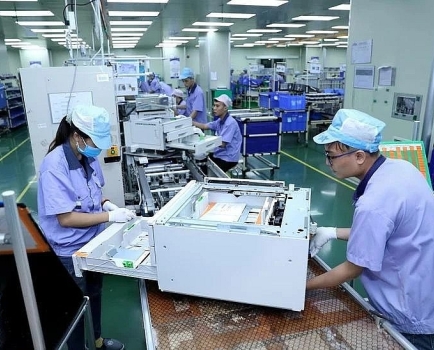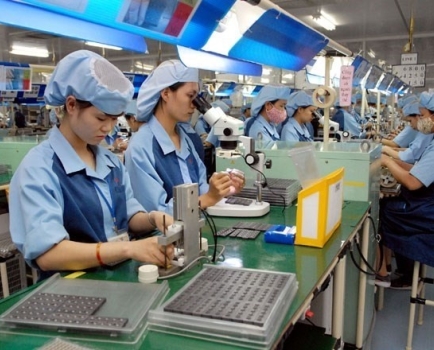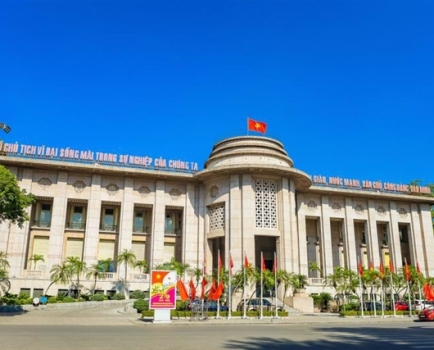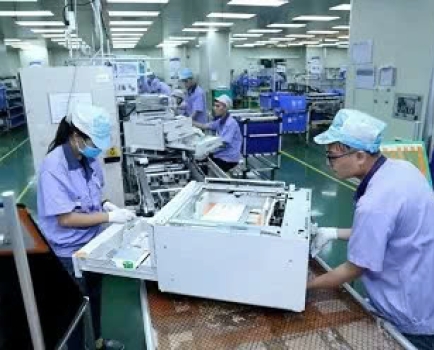EU-Vietnam pact to deliver trade and investment bonanzas
Thu, 04 Jul 2019 15:18:00 | Print | Email Share:
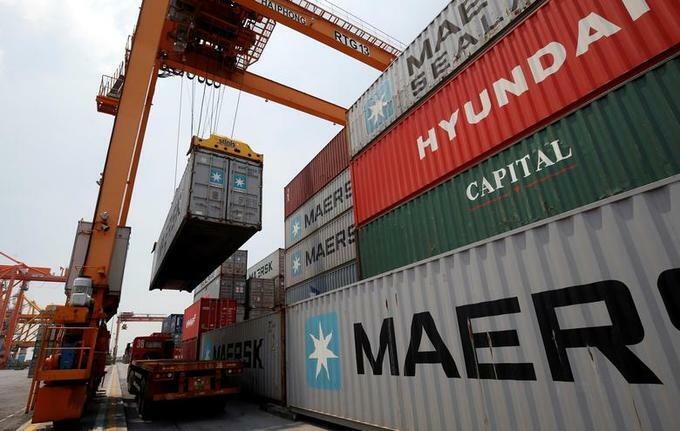
Vietnam immediately at the entry into force of the EVFTA. Photo by Reuters/Kham.
The EU-Vietnam Free Trade Agreement will grant Vietnam easier access to a market of 500 million plus people and a total GDP of $15 trillion.
The EVFTA was split into two separate agreements in June 2018, one on trade and one on investment. The deals, signed in Hanoi last Sunday after nine years of negotiations, are the first comprehensive and ambitious trade and investment agreement that the EU has ever concluded with a developing country. It is the second agreement in the ASEAN region after Singapore.
The EVFTA needs to be ratified by the European Commission and European Parliament while the EU-Vietnam Investment Protection Agreement (EVIPA) must be additionally ratified by the Parliament of each EU member country.
The new generation FTA covers a range of critical areas, from trade in goods and services to public procurement, labor protection and investor-to-state dispute settlement.
Market access parameters
The EU has agreed to eliminate duties for 84 percent of the tariff lines for goods imported from Vietnam immediately at the entry into force of the EVFTA. Within 7 years from the effective date of the FTA, more than 99 percent of the tariff lines will have been eliminated for Vietnam.
Vietnam will benefit more from the EVFTA compared with other FTAs since Vietnam and the EU are considered to be two supporting and complementary markets: Vietnam exports goods that the EU cannot or does not produce itself ( i.e. fishery products, tropical fruits, etc.) while the products imported from the EU are also those Vietnam cannot produce domestically.
Government procurement
Vietnam has one of the highest ratios of public investment-to-GDP in the world (39 percent annually from 1995). However, until now, Vietnam has not agreed to its government procurement being covered by the Government Procurement Agreement (GPA) of the WTO. Now, for the first time, Vietnam has undertaken to do so in the EVFTA.
The FTA commitments on government procurement mainly deal with the requirement to treat EU bidders, or domestic bidders with EU investment capital, equally with Vietnamese bidders when a government purchases goods or requests a service worth over the specified threshold.
Vietnam undertakes to publish information on tender in a timely manner, allow sufficient time for bidders to prepare for and submit bids and maintain the confidentiality of tenders.
The FTA also requires its parties to assess bids based on fair and objective principles, evaluate and award bids only based on criteria set out in notices and tender documentation and create an effective regime for complaints and settling disputes, and so on. These rules require parties to ensure that their bidding procedures match the commitments and protect their own interests, thus helping Vietnam to solve its problem of bids being won by cheap but low-quality service providers.
Labor protection
The EVFTA requires member states to comply with the following fundamental principles of the International Labour Organization (ILO): the freedom of association and the effective recognition of the right to collective bargaining; the elimination of all forms of forced or compulsory labour; the effective abolition of child labour; the elimination of discrimination in respect of employment and occupation.
This means that the member states must legislate, for example, minimum wages, hours of work and safety and health security standards. However, it is not settled in these agreements to what extent those rights must be legislated. As a result it is up to the member states to establish a minimum wage (which might be ridiculously low).
As Vietnam already sets out minimum wages, the most important ILO standard for Vietnamese labour law is the freedom of association, i.e. the freedom of labourers to found an independent trade union, to choose a trade union they want to be a member in and the right of the trade unions to affiliate with each other.
The EVFTA names the right of freedom of association and the effective recognition of the right to collective bargaining as one of the most important standards of ILO in the published agreement text.
The parties are obliged to make continued and sustained efforts towards ratifying, to the extent it has not yet done so, fundamental ILO conventions.
This is important for Vietnam, as although it is a member of the ILO, it has not ratified ILO Convention No.87 and No.98 on freedom of association and collective bargaining respectively.
Enforcement of ISDS
This is now covered in the EVIPA. The term "investment" under the EVIPA is limited to kinds of assets that are owned or controlled, directly or indirectly, by an investor of EU/ Vietnam in the territory of Vietnam/ EU; and have the characteristics of an investment (for example, commitment of capital or other resources, the expectation of gain or profit, the assumption of risk and a certain duration).
In disputes regarding the investment, an investor is allowed to take them to the Investment Tribunal for settlement (Investor-to-State dispute settlement mechanism - ISDS).
This means that the investors do not need to lobby their governments to file the case on their behalf. To ensure fairness and independence of the arbitration court, a permanent international investment tribunal will be formed with nine members, three nationals appointed from each of the EU and Vietnam; and three nationals appointed from third countries.
Cases will be heard by a 3-member tribunal selected by the chairman of the Tribunal in a random, unpredictable way.
This seeks to ensure consistent rulings in similar cases, thus making the dispute settlement more predictable. The EVIPA also allows a sole tribunal member where the claimant is a small or medium-sized enterprise or the compensation of damaged claims is relatively low. This is a flexible approach considering that Vietnam is still a developing country.
In case either disputing parties disagree with the decision of the tribunal, they can approach the Appeals Tribunal. While this is different from common arbitration proceedings, it is quite similar to the 2-level dispute settlement mechanism in the WTO (Panel and Appellate Body). We believe that this mechanism can save time and cost for the proceedings.
The final settlement is binding and enforceable without question from the local courts regarding its validity, except for a five-year period following the entry into force of the FTA for Vietnam.
However, it has to be noted that the ISDS does not automatically apply in all disputes regarding the investment covered under the IPA.
In fact, parties to the disputes can agree to solve the dispute by other means, for example, international commercial arbitration, local courts, action in the framework of the World Trade Organization or any other actions under any other international agreement to which both EU and Vietnam are parties.
It is important that parties choose the right forum to maximize chances of winning the case.
*Dr. Oliver Massmann is general director of Duane Morris Vietnam LLC law firm.
By: Dr. Oliver Massmann/VnExpress
---------------------------------------------
Same category News :



